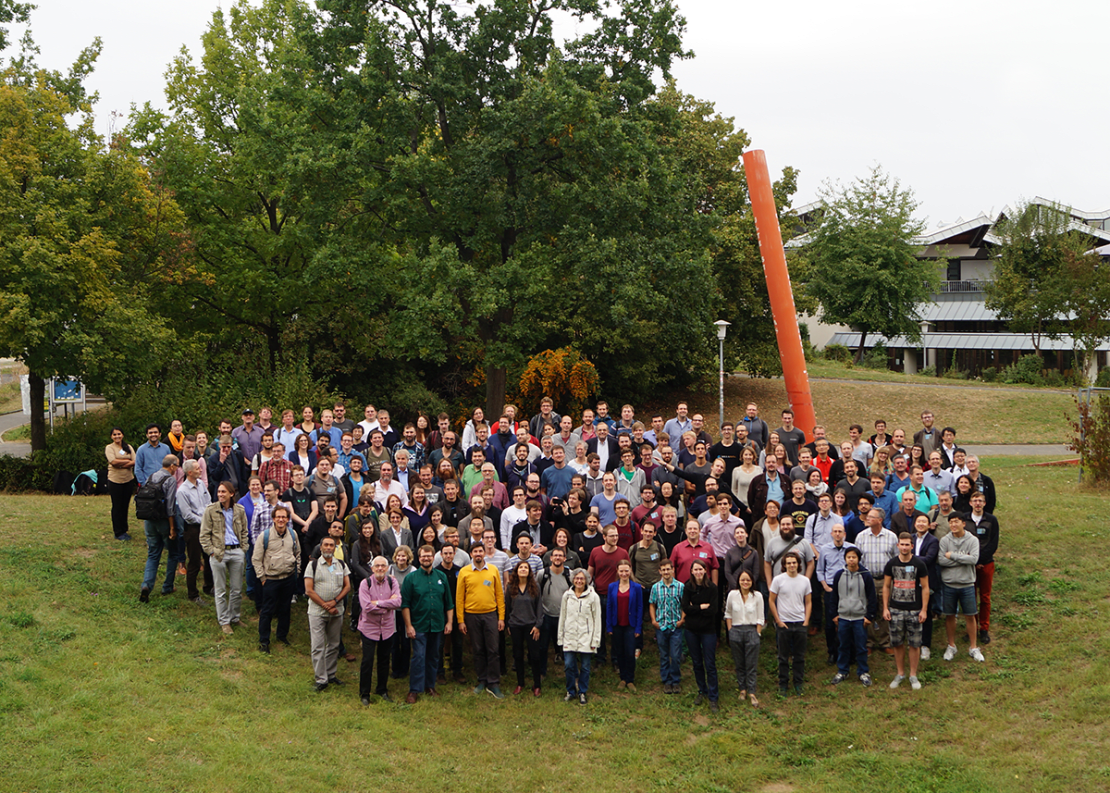The IceCube Collaboration fall 2016 meeting ends today at Johannes Gutenberg Universität Mainz in Germany. Professors Sebastian Böser and Lutz Köpke hosted the weeklong meeting.
“It’s been a total thrill to see how fast we as a collaboration are moving forward on so many fronts in parallel,” says Sebastian Böser. “I hope everyone has enjoyed the meeting in Mainz as much as we’ve enjoyed hosting the collaboration.”

Over 200 attendees traveled in from 12 countries for the opportunity to meet face-to-face. Science and funding potential for future extensions of the IceCube Neutrino Observatory were a main focus. Throughout the week, members discussed ongoing analyses, including searches for astrophysical neutrino sources, characteristics of the astrophysical neutrino flux, cosmic-ray anisotropy studies, the IceCube neutrino oscillation results, and searches for physics beyond the Standard Model. The collaboration also focused on upgrades to IceCube neutrino alerts, which send information about interesting high-energy events to other observatories around the world, as well as progress in detector operations, software, education and outreach, and communications.
IceCube researchers will also participate in the annual Mediterranean-Antarctic Neutrino Telescope Symposium (MANTS), following the collaboration meeting, with colleagues from the ANTARES, Baikal and KM3Net collaborations. The four collaborations are partners in the Global Neutrino Network (GNN), a community fostering a closer collaboration and a coherent strategy among the neutrino telescope projects.
The next IceCube collaboration meeting is scheduled for early May 2017 in Madison, WI.